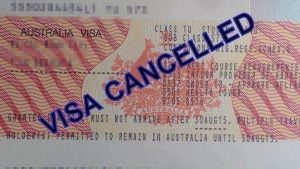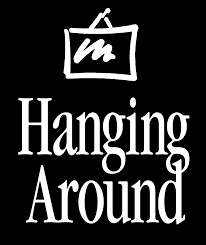Pinchas 2021 – Job Opening: Leader of the Jews
by devadmin | July 1, 2021 9:03 pm
Job Opening: Leader of the Jews
Raboyseyee and Ladies:
Is one required to be married to a nice Jewish girl from a nice Jewish family in order to be considered for a leadership position? We shall explore that question soon, but let’s start here.
Shoin, a few parshas back, the RBSO got angry with Moishe and meted out instant punishment. A dedicated leader who led the Yiddin out of Mitzrayim and shepherded them through 40 difficult years of midbar wanderings with his eyes always on the prize -the Promised Land- Moishe got the bad news. He was fired! He was not going to make it into the land; his visa was instantly revoked; he was suddenly on the ‘do not enter list.” In our times, Moishe would have been able to sneak across the border. Shoin!

Why the harsh punishment? Says the heylige Toirah in our parsha (Bamidbar 27:14), azoy: “You [Moishe] disobeyed My command in the desert of Zin when the congregation quarreled, [when you were] to sanctify Me through the water before their [the Jewish people’s] eyes; these were the waters of dispute (aka: Mei Merivah) at Kadesh, in the desert of Zin.”
The good news: though doomed and now a dead man walking, the RBSO -also in this week’s parsha of Pinchas, (named after a fine gentleman who rose to notoriety because he was seemingly adept with his spear) had rachmunis on Moishe and decided to give him a sneak preview of the land Moishe would never step foot into or on. Says the heylige Toirah (27:12-13) , “The L-rd said to Moishe, ‘Go up to this mount Abarim and look at the land that I have given to the children of Israel. And when you have seen it, you too will be gathered to your people [and disallowed from entering; see Rashi’s gloss], just as Aharoin your brother was gathered.’”
Was this a reward? Or, was this a tease? Was this further anguish for a broken man who dreamed about the land for forty years. And the answer? Ver veyst? What we do know is this: in Parshas Pinchas, the leadership position is suddenly open. Moishe is to be replaced. Ober who was up to the job? And who would appoint that person? Were resumes collected? Was there an election? Could dead people vote? Who was eligible to vote? Was voter ID required? Was it Moishe’s choice? Who were the qualified candidates and the logical successors? Anyone? More than one? What were the qualifications? Surely the search process would be long. Bring in the headhunters?

Nu, avada you all know that it was not much of a contest as Yehoishua was instantly selected, and anointed. Ober, the questions are azoy: Why him? Did Moishe want Yehoishua? Were others, to include Pinchas himself -an instant national hero who stopped the bleeding -so to speak- in the running? And what about Moishe’s own sons Gershom and Eliezer? What about Kolave? Shoin, after a shocking review of Parshas Bolok where we quoted the heylige Gemora verbatim and yet, a few readers were left speechless with what the Gemora had to say about Bilham and his donkey, this week, we’re back with a rather parve review on the inner workings of the selection of a new leader. As an aside, that very shtikel Gemora goes on to tell that it was Bilham who concocted the entire plot which ensnared 24,000 Yiddin into performing lewd sexual acts with the hot Moabite shiksas. For those interested in the details, check out the archives at www.Oisvorfer.com.
Shoin, let’s meet the contenders. What about Pinchas? Why not Pinchas, the apparent hero of the parsha, whose actions and vigilantism, efsher saved the Yiddin from being wiped out by the post orgy plague? Was he not immensely popular and worthy of the job? Having just demonstrated his unflinching fidelity to the RBSO and qualities of leadership through his single-handed efforts to purge the idolaters from Israel’s midst, he seemed the natural choice. Moreover, the RBSO seemed to appreciate him as he was instantly rewarded by the RBSO with priesthood and adored by (most) people. Was he not the most logical choice?
Ober, says the Kotzker Rebbe, azoy: Pinchas, the zealot whose name titles this week’s parsha was taka a good man, but… (and, when we read the word ‘but’ watch out ahead), Moishe, after years of leadership experience, realized that the exact characteristics that made Pinchas popular were not the right traits for a good leader. Pinchas was a man who, in a moment of crises, took the law into his own hands. He was certainly decisive, but acted in a rash and extreme manner. Even though his deed may have served to assuage the RBSO’s wrath against the people and earned him God’s favor, it was not enough to sustain the people on a day-to-day basis. The bottom line: taking the matter into one’s hand, if you chap, is not always the right answer. It may -at times- taka provide a solution, if you chap, and solve an instant issue, ‘but’ it’s not a long-term fix. Another bottom line: Pinchas did earn a parsha named after himself and considering that there are but 54 of them, that’s not too shabby. Another bottom line: having one’s name adorn a building, or, an entire parsha in the heylige Toirah, is not cheap!
What about Kolave? Why not him? Who was Kolave? Let’s recall that both he and Yehoshua were introduced to us formally back in Parshas Shelach: both were part of spy-gate. They were the two good guy spies who spoke well of the land and talked down the dissenters. Actually, that’s not quite emes: it was actually Kolave who defended the land. Moreover, we are taught that Kolave was more dominant in his efforts to convince the Yiddin about the land. Says the heylige Toirah (Bamidbar 13:30)
| Caleb silenced the people to [hear about] Moses, and he said, “We can surely go up and take possession of it, for we can indeed overcome it.” | לוַיַּ֧הַס כָּלֵ֛ב אֶת־הָעָ֖ם אֶל־משֶׁ֑ה וַיֹּ֗אמֶר עָלֹ֤ה נַֽעֲלֶה֙ וְיָרַ֣שְׁנוּ אֹתָ֔הּ כִּֽי־יָכ֥וֹל נוּכַ֖ל לָֽהּ: |
Moreover, the RBSO loved Kolave so the heylige Toirah told us. Mamish? Why not Kolave ben Yefuneh, he the very good spy that the RBSO gave a special shout-out to? We read this in Bamidbar 14:24:
| But as for My servant Caleb, since he was possessed by another spirit, and he followed Me, I will bring him to the land to which he came, and his descendants will drive it[s inhabitants] out. | כדוְעַבְדִּ֣י כָלֵ֗ב עֵ֣קֶב הָֽיְתָ֞ה ר֤וּחַ אַחֶ֨רֶת֙ עִמּ֔וֹ וַיְמַלֵּ֖א אַֽחֲרָ֑י וַֽהֲבִֽיאֹתִ֗יו אֶל־הָאָ֨רֶץ֙ אֲשֶׁר־בָּ֣א שָׁ֔מָּה וְזַרְע֖וֹ יֽוֹרִשֶֽׁנָּה |
He was of course destined to enter and seemed like a decent candidate. And listen to this Toisefta (4:7) to the end of Kerisus we learn this: Yehoshua and Kolave were equal to one another; here is the exact quote:
בלתי כלב בן יפונה הקנזי ויהושע בן נון מלמד ששניהן שקולין זה כזה.
Translation: they were equal in their stature before the RBSO.
Moreover, he was married to Miriam, Moishe’s older sister and would he not then make for a perfect successor? And further questions include these: why wasn’t he chosen? Or why weren’t they chosen together? The heylige Ois still feels bad that he did not have the presence of mind to name one of his boys after Kolave. He was the man. See archives for a better understanding of all Kolave was. What’s taka pshat? Was he overqualified? Was his yichus too perfect? Ver veyst? What quality did Yihoishua have that was efsher lacking in Kolave?
Ober says Rabbi Yona Munk, azoy: whereas Yehoishua is described as tolerating everyone’s personality – so says Rashi (Pinchas 27:16), Kolave is described as having “a “ruach acheres” a different “spirit” (Sh’lach 14:24), whatever that means. Seemingly, he was less tolerant than was Yihoishua and shoin. Someone who cannot tolerate the disparate people he must lead, might have trouble managing them. The Yiddin were not an easy bunch to manage.
The bottom line: Kolave did not get the call. Let’s look at a few other candidates and their disqualifications for the top post.
What about Moishe’s own children? Didn’t they check all the boxes? Didn’t they observe him regularly for 40 years as he held the fragile nation together? And didn’t they observe how he handled crisis after crisis that included rebellions, civil disobedience, challenges to his leadership and more? And didn’t they come from a good gene pool that included Moishe, Aharoin, Miriam and others? Moreover, don’t most rebbes in our times pass along the leadership mantle to their children? And don’t they -when they have more than one son- find other creative ways to split the assets in some fashion? They do! And wasn’t Moishe known as ‘rabaynu’ – meaning he was our rebbe? He was! Why were his sons cut out? Was this a unique case where yichus (pedigree) did not help them climb to the top? Were they themselves flawed? What happened to them? Where are they? Did they go into hiding over at the yeshiva of Shaim and Eyver, a popular, maybe even mythical institution where several Toirah personalities whose years we could not account for, were students?
Shoin, let’s see what we know with certainty. At some point, either when the Yiddin left Mitzrayim or in the midbar, the boys (Gershom and Eliezer), along with their mother Zipporah and zeyda (grandfather) Yisroy, did rejoin their father Moishe. If so, did they stay? And if they did, why is there no mention of them? And why are they not mentioned in either census and specifically the census in our parsha?
Says the medrish Tanchuma (Pinchas 11) azoy: when Moishe was advised of his termination, he requested of the RBSO that one of his sons be appointed. Ober the RBSO said no! “Your sons sat and did not occupy themselves with Toirah. Ober Yehoishua on the other hand, who served you, is fitting to serve Israel.” Were they busy playing games on their iPhones?
A medrish on (Judges:18) teaches us that Moishe’s calling to lead the nation out of Mitzrayim followed by the forty years in the midbar, came at a price. Seemingly, his boys had an absentee father and their anguish took its toll on them. One may have dabbled in avoido zoro (idolatry), say it’s not so please. Is it also possible that Tzipoirah and her sons, following the divorce, or as the heylige Toirah tells us – after he sent her away- led totally different lives? Could it taka be emes that their lives and experiences back in Midyan were not quite what the Yiddin experienced at Har Senai? And could that taka be pshat in why the heylige Toirah is silent about her and the two boys? Maybe! One thing is zicher: They played no active part in Moishe’s life or leadership. Moreover, this pshat might fit perfectly for those who believe that Moishe married a second wife, the tinkele Kushite beauty, only after sending Tzipoirah and also her two boys, packing. And, if this is taka pshat, it would appear that his divorce weighed heavily on his boys. Neither Tzipoirah nor the boys were then present for yitzyas Mitzrayim (Exodus), nor did they experience the splitting of the Yam Suf and they also likely missed the thunder and light show before the RBSO came down to hand deliver the Aseres Hadibrois. In other words: they were not believers as were the Yiddin following the open miracles.
Shoin, now that our good sages found a way to besmirch Moishe’s mishpocho, efsher we need to ask this shaylo: If the RBSO left this information out of the heylige Toirah so as not to embarrass Moishe, and instead left us with a big hole, why weren’t our rabbis of the medrish and the Gemora as careful with his honor? Why bring this up and have us believe that it’s even possible that Moishe’s own boys were not just unworthy of leadership but at least one of them may have also been involved in idol worship? Are we not defaming Moishe by discussing this very topic? Taka an excellent question. Could it be that for certain topics, for certain holes, it’s efsher better to leave them open? Does every hole require a plug?
 Bottom line: it would appear that Moishe’s sons were never in the running. It’s also possible that Moishe’s sacrifices on behalf of the Yiddin included the breakup of his own family and the inability therefore to control or influence his kinderlach. If this is emes, Moishe may have been the first but zicher not the last rabbi who was able to lead many but had no control of his affairs at home. Azoy geyt is, that’s how it sometimes sadly goes. Another bottom line: Moishe was mamish a true leader and concerned only with continuity. Instead of asking for a pardon or reprieve, and instead of fighting for his kids, he instead wanted to make sure that the Yiddin would have a competent leader.
Bottom line: it would appear that Moishe’s sons were never in the running. It’s also possible that Moishe’s sacrifices on behalf of the Yiddin included the breakup of his own family and the inability therefore to control or influence his kinderlach. If this is emes, Moishe may have been the first but zicher not the last rabbi who was able to lead many but had no control of his affairs at home. Azoy geyt is, that’s how it sometimes sadly goes. Another bottom line: Moishe was mamish a true leader and concerned only with continuity. Instead of asking for a pardon or reprieve, and instead of fighting for his kids, he instead wanted to make sure that the Yiddin would have a competent leader.
Nu, efsher you’re wondering why Yehoishua got the nod. Where did he come from and what were his qualifications for the job? Ershtens (firstly), as depicted at the end of Parshas Beshalach (Shmois 17:13), he was a military leader (“Yehoishua weakened Amalek and his people with the edge of the sword.”) Everyone loves a winning general, and that includes camp color-war generals. Next, following the fiasco with the eygel (Golden Calf), Rashi tells us explicitly of the special relationship between Moishe and Yihoishua, and that the latter never left his teacher’s tent of Toirah learning.
Says the medrish (BaMidbar Rabba 21:14) azoy: Moishe said “Master of the Universe, I am getting old. We need a new leader. I want my sons to take over.” Ober the RBSO responded that Yehoishua deserved this position because he never left Moishe’s side. He was Moishe’s trusted disciple and he would become the next leader of the Yiddin. Says the Yalkut, the conversation went like this: the RBSO said: Moishe, it is not like you think. Your sons will not inherit your position. You know that Yehoishua served you with devotion and showed you much respect. Morning and evening, he was the one who arranged the benches in your academy and spread down the carpets. He shall take the rule. As it says, ‘He who guards a fig-tree shall eat its fruit” (Mishlei 27:18). Moreover, the RBSO Himself testified that of all of Moishe Rabbeinu’s talmidim, only Yehoishua truly served Moishe with all his strength. Moishe had a Yeshiva in the midbar? It had benches? And carpeting? Who knew? Nu, ver veyst, ober as you should well know, the medrish uses color to give oisvorfs like many of you, a fuller picture. Avada you recall that the midbar was a magical place and if you can imagine Mun for food, tichelyles (blue wool), clouds of glory, a rolling well, and many other miracles, why can’t you also imagine a yeshiva with benches and carpet that Yehoishua arranged daily?
Says the medrish (Yalkut Shimoni) further azoy: “zocho l’yerushasoy” (because he [Yehoishua] was Moishe’s attendant he merited the appointment as leader of the people. What did he actually do? Says the medrish that Yehoishua was special because he was “meshoreis Moishe” (he was his personal attendant). Yehoishua was the student willing to do all the unglamorous work to help his rebbe and teacher. By doing so he learned all those ineffable things you only pick up through long personal contact. In plain English: he hung around. Ober, does one merit appointment to so high a post for merely hanging around? Decades back my father told the following joke: Goldberg comes before the judge for sentencing…judge says: before I sentence you Goldberg, tell me what do you do for a living? Goldberg answers: “I hang around.” Judge asks: from hanging around you make a living? Goldberg: let me hang around you judge; you’ll make a living and so will I! Bada bing!

Ober says Rabbi Joseph B. Soloveitchik (the Rav), azoy: “Often, a leader’s successor was chosen not only because of his intellectual prowess but also because of his devoted service to his teacher.” By way of example only, when the Baal Shem Tov passed away, the mantle of leadership was not given to Rav Yaakov Yosef, a Torah giant and the author of Toldos Yaakov Yosef. Rather, it passed to the Maggid of Mezeritch, who had served the Baal Shem Tov with great devotion and loyalty.
The Rav continues, “Yehoishua was not a greater scholar than Pinchas or Elozor, but the service of Torah [scholars] is greater than its study (Talmud Bavli, Berachos 7b). Service does not merely signify physical toil; it also represents a special closeness and friendship between the teacher and disciple, a type of partnership. The chosen disciple not only receives information from his rebbe, but absorbs a way of life, until they are practically identical in their essence. Moishe knew that through his student-colleague, the Torah would be transmitted to future generations.” The bottom line: neither Pinchas, Elozor, or even Moishe’s sons, hung around Moishe with such dedication; only Yehoishua completely absorbed Moishe’s values and way of life until he was able to emulate his rebbe’s very essence.
The bottom lines: there are several parallels in what Moishe and Yehoishua bequeathed to the Yiddin. Moishe crossed the Yam Suf, Yehoishua crossed the Jordan. Moishe was there to facilitate the Ten Commandments, Yehoishua to deliver the Promised Land. Moreover, Moishe and his successor Yehoishua had this in common: their resumes matched up perfectly; both were married to former shiksas who had converted. Moishe married Yisroy’s daughter (in case you forgot, Yisroy was a gentile Priest who may, or may have not eventually converted), and Yehoishua married Rochov, not just a shiksa but also efsher a former harlot. Gishmak. The resumes of Pinchas, Kolave, and Moishe’s own sons, did not match up. The final bottom line: if any of your children bring home a converted or about to convert shiksa, remember the lessons of Yehoishua.
A gittin Shabbis!
The Heylige Oisvorfer Ruv
Yitz Grossman
Source URL: https://oisvorfer.com/pinchas-2021-job-opening-leader-of-the-jews/